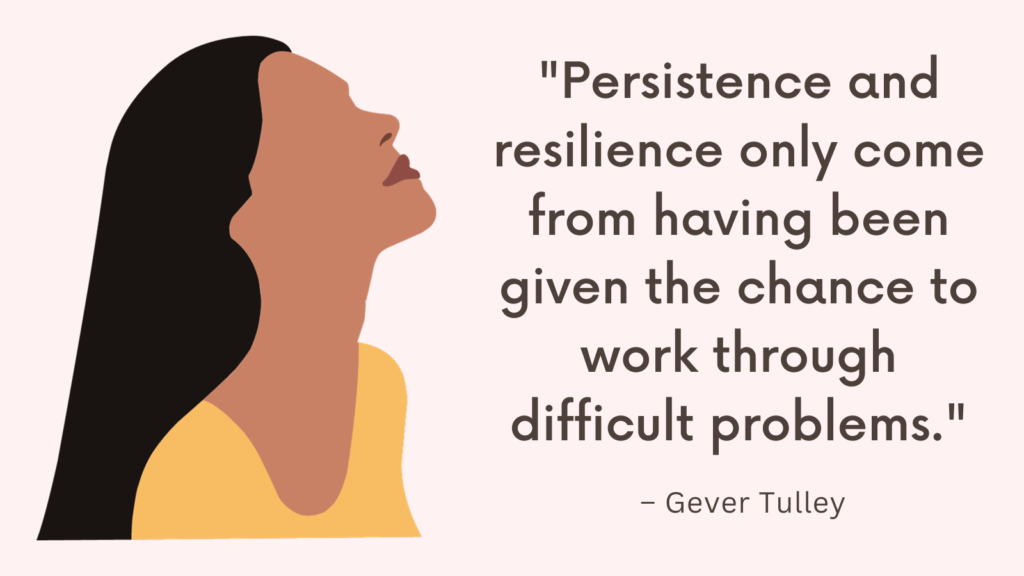In this post, you’re going to learn how to cope with caring for elderly parents stress.
What Is Caregiver Burnout?
Caregiver burnout is a state of physical, mental, and emotional exhaustion that can occur when caregivers are continuously under significant stress and do not have adequate support systems in place.
Caregivers often experience burnout when they devote all their time and energy to caring for others while neglecting their own well-being.
This prolonged state of stress can result in feelings of overwhelming fatigue, irritability, anxiety, and a decreased sense of fulfillment in their caregiving role.
Signs of Caregiver Burnout
Some common signs and symptoms of caregiver burnout include:
1. Physical exhaustion: Are you finding yourself feeling constantly tired, even after a full night’s sleep? Do you often feel physically drained or lack energy to do daily activities?
2. Emotional distress: Are you experiencing increased levels of stress, anxiety, or irritability? Do you find yourself feeling overwhelmed or easily frustrated? Have you noticed changes in your mood or emotional well-being?
3. Neglecting self-care: Are you neglecting your own needs, such as skipping meals, not getting enough exercise or rest, or not attending to your own health concerns? Are you finding it difficult to make time for activities you once enjoyed?
4. Social withdrawal: Have you become socially isolated or withdrawn from friends and family? Do you find yourself avoiding social interactions or conversations due to the demands of caregiving?
5. Reduced sense of personal fulfillment: Do you feel a loss of personal satisfaction or fulfillment in your caregiving role? Are you questioning the value or purpose of your efforts?
6. Cognitive difficulties: Have you noticed difficulties with concentration, memory, or decision-making? Do you find it hard to focus or feel mentally overwhelmed?
7. Increased physical ailments: Are you experiencing more frequent headaches, digestive issues, or other physical symptoms that could be related to stress?
It’s important to recognize the signs of caregiver burnout as it can have serious consequences on both the caregiver’s physical and mental health. If left unaddressed, burnout can lead to chronic stress, depression, and compromised immune functioning.
Related: Caregiving vs Caretaking (The Savior Complex)
How to Cope With Caring for Elderly Parents Stress?
Caring for elderly parents can be a rewarding and meaningful experience, but it also comes with its own set of challenges and stresses.
Please note that the following recommendations are general in nature and may not suit everyone’s specific situation, so it is important to adapt them to your individual circumstances.
1. Seek Support
Caring for elderly parents can sometimes feel overwhelming, so it is crucial to build a support system around you.
Reach out to family members, friends, or support groups who understand your situation and can provide emotional support.
Talking to others who are going through similar experiences can be comforting and offer valuable advice.
2. Set Realistic Expectations
Accept that you can’t do everything by yourself.
Recognize your limitations and be realistic about what you can and cannot accomplish.
Understand that it is okay to ask for help and delegate tasks when needed.
Prioritize self-care and remember that your well-being is also important.
Related: Caregiver Burnout vs Compassion Fatigue
3. Educate Yourself
Take the time to learn about your parents’ medical conditions, medications, and any other relevant information.
This will help you better understand their needs and communicate effectively with healthcare providers.
Seek out resources, workshops, or online courses that can provide you with the necessary knowledge and skills to care for your parents effectively.
4. Maintain Open Communication
Effective communication is essential in any caregiving relationship.
Regularly engage in open and honest conversations with your parents and other family members involved in their care.
Discuss their preferences, concerns, and wishes regarding their health and future care plans.
This will help you make informed decisions and reduce misunderstandings.
Related: 4 Essential Keys To Effective Communication
5. Utilize Support Services
Explore local support services and resources available for caregivers of the elderly.
These could include respite care, adult day programs, in-home assistance, meal delivery services, or transportation services.
Utilizing these services can provide you with much-needed breaks and alleviate some of the responsibilities.
6. Practice Self-Care
Taking care of yourself is crucial to maintaining your physical and mental well-being.
Make time for activities that bring you joy and help you relax, such as exercise, hobbies, meditation, or spending time with loved ones.
Engage in activities that recharge your energy and provide a sense of fulfillment.
7. Take Breaks
Don’t underestimate the importance of taking breaks from your caregiving responsibilities.
Schedule regular breaks, whether it’s a short walk, engaging in a hobby, or even planning a vacation.
Taking time away from your caregiving duties will allow you to recharge and return with renewed energy and focus.
8. Manage Your Stress
Managing stress is vital for your overall well-being.
Explore stress management techniques that work for you, such as deep breathing exercises, mindfulness meditation, journaling, or engaging in relaxation activities.
Regular exercise, adequate sleep, and maintaining a healthy diet can also contribute to stress reduction.
Related: Best 8 Mindfulness Exercises For Adults That Will Help You Regulate Your Emotions
9. Maintain a social life
While caregiving responsibilities can be time-consuming, it’s crucial to maintain connections outside of your role as a caregiver.
Engaging in social activities, hobbies, or spending time with friends and loved ones can provide a sense of normalcy, support, and respite from caregiving stress.
Challenges of Caring for Elderly Parents
Caring for elderly parents can be challenging due to a variety of factors. Some common challenges include:
1. Emotional strain
Providing care for aging parents often involves witnessing their physical and cognitive decline, which can be emotionally distressing.
It may also bring up feelings of grief, loss, and sadness as you see them struggle with their health and independence.
2. Time commitment
Caring for elderly parents can require a significant amount of time and energy.
This can impact your personal life, career, and other responsibilities, leading to feelings of overwhelm and exhaustion.
3. Financial implications
Caring for elderly parents can come with financial burdens.
Medical expenses, home modifications, and long-term care can be costly, potentially impacting your own financial stability and creating stress.
4. Balancing multiple roles
Many individuals who care for elderly parents also have their own families, careers, and personal obligations to manage.
Balancing these various roles can be challenging, leading to feelings of being pulled in different directions.
Related: Compassion Fatigue Self Test
5. Complex care needs
Aging parents often have complex medical and care needs that require specialized knowledge and skills.
This can be overwhelming, especially if you have limited experience or access to professional support.
6. Role reversal and loss of independence
Caring for elderly parents often involves a shift in the parent-child dynamic, where the child takes on more of a caregiving role.
This can be emotionally difficult for both parties and may lead to tension and conflict.
It’s important to note that everyone’s caregiving experience is unique, and specific challenges may vary. Recognizing and understanding these challenges can help you find appropriate support and coping strategies.
Related: 5 Stages of Compassion Fatigue
How to Deal with Feelings of Guilt and Resentment?
Feelings of guilt and resentment are common among caregivers, stemming from the overwhelming responsibilities and sacrifices involved.
Guilt often arises from a perceived failure to meet expectations or obligations, while resentment stems from feeling burdened, trapped, or unappreciated.
Recognizing and acknowledging these emotions is the first step toward finding effective ways to deal with them.
1. Self-Compassion
Practice self-compassion by recognizing that you are doing the best you can under challenging circumstances.
It’s essential to acknowledge that you have limitations and that it’s okay to take breaks and prioritize your own well-being.
2. Seek Social Support
Connect with others who understand your situation, such as other caregivers or support groups.
Sharing experiences, venting frustrations, and receiving empathy from individuals facing similar challenges can help alleviate feelings of isolation and provide valuable emotional support.
3. Set Realistic Expectations
Recognize that you are human and cannot be everywhere and do everything at all times.
Adjust your expectations and understand that it is impossible to meet every demand perfectly.
Focus on what you can reasonably accomplish and accept that some things may remain undone or require assistance from others.
Related: How Resilience Works? Top 10 Powerful Ways to Stay Healthy and Happy During Tough Times
4. Communicate Openly
Discuss your feelings with your aging parents, siblings, or other family members involved in caregiving.
Engaging in open and honest conversations can foster understanding and help distribute responsibilities more evenly.
Establishing clear boundaries and setting realistic expectations can help reduce guilt and resentment.
5. Delegate Responsibilities
Recognize that you don’t have to take on all caregiving responsibilities alone.
Consider involving other family members, friends, or hiring professional caregivers to share the workload.
Delegating tasks not only provides practical support but also reduces feelings of resentment and guilt associated with shouldering an extensive caregiving burden.
Related: Top 45 Self Care Day Ideas at Home To Kickstart Your Self Care Ritual
6. Seek Respite Care
Take advantage of respite care services that offer temporary relief from caregiving duties.
Respite care provides professional care for your aging parents, allowing you to take a break and attend to your own needs without feeling guilty.
Utilizing these services can lead to increased overall well-being and reduce caregiver burnout.
7. Cultivate Gratitude
Develop a gratitude practice to shift your focus from negative emotions to the positive aspects of caregiving.
Keep a gratitude journal, where you jot down moments or aspects of caregiving that bring you joy, satisfaction, or a sense of purpose.
Cultivating gratitude helps reframe your mindset and minimize resentment and guilt.
Related: Top 5 Tips On How To Be Assertive Without Being Rude
How to Cope with the Emotional Toll of Watching Your Parents Decline In Health?
Witnessing your parents’ health decline can be an emotionally challenging experience.
As caregivers, it is vital to acknowledge and address the emotional toll it takes on your well-being.
1. Acceptance of Reality
Coming to terms with the reality of your parents’ declining health is a crucial step in coping with the emotional toll.
Understand that aging and health deterioration are natural processes, and as difficult as it may be, acceptance allows you to focus your energy on providing the best possible care and support.
2. Validate Your Feelings
Acknowledge and validate your emotions, which may include grief, sadness, anger, frustration, guilt, or even relief.
It is normal to experience a wide range of emotions during this journey.
Give yourself permission to feel and express these emotions without judgment.
Related: How To Validate Someone’s Feelings Without Agreeing? (+Examples of Validating Statements)
3. Educate Yourself
Learn about your parents’ medical conditions and the various aspects of caregiving to feel more informed and empowered.
Understanding the progression of their illnesses, available treatment options, and support services can help alleviate anxiety and uncertainty.
4. Seek Professional Support
If you find that the emotional burden becomes overwhelming or affects your daily functioning, consider consulting a therapist or counselor specializing in caregiver support or grief counseling.
They can provide a safe space to process your emotions, offer coping strategies, and provide guidance tailored to your specific needs.

Conclusion
Each caregiver’s experience is unique. Finding coping mechanisms that work for you may take time and experimentation.
Be kind to yourself and acknowledge that you are doing the best you can in a challenging situation.
Proper self-care and seeking support are crucial in ensuring your well-being as you navigate the complexities of caring for elderly parents.



